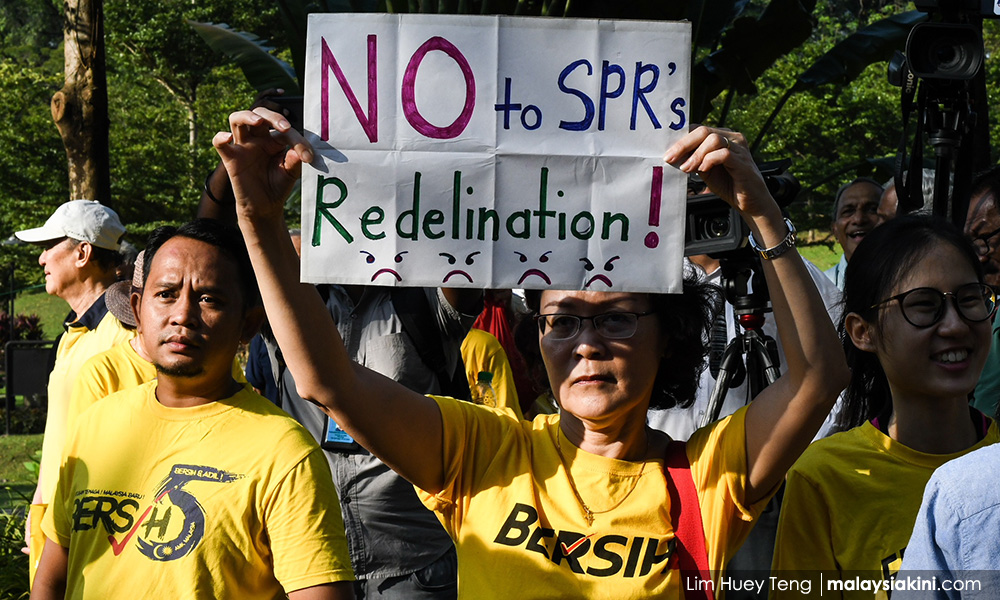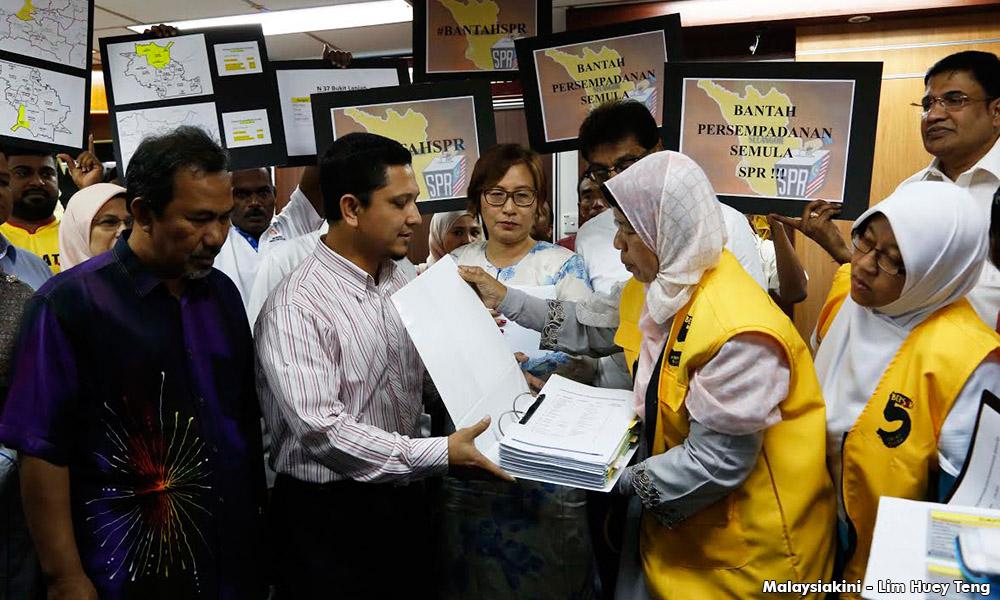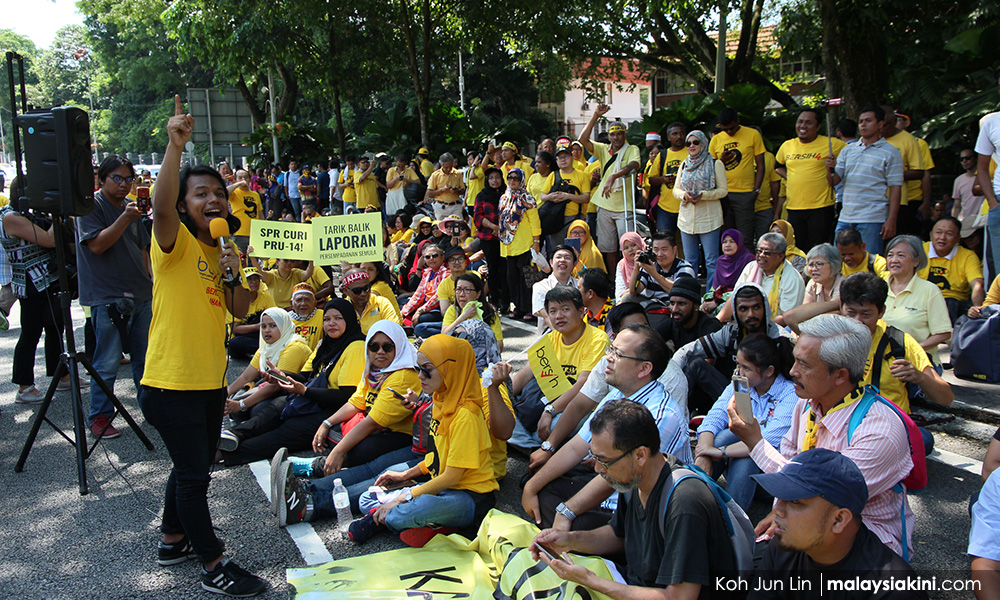
By now, everyone should already know that the redelineation bill proposed by BN has been passed in Parliament. What this means is that many of the parliamentary constituencies in Malaysia will have new boundaries and a new number of voters.
The opposition and many non-governmental groups and activists have called it a gerrymandering exercise aimed at increasing BN’s chances in the next general election. In fact, there was even a protest outside Parliament before the bill was tabled.
At the end of the day, after all the votes by the members of Parliament, the bill was passed with an overwhelming vote of 129 votes against 80. This doesn’t come as a surprise, since there is just too big of a majority held by the BN.
A result of this majority that the BN holds largely stems from the constituency lines anyway. In the last general election in 2013, the opposition had won the popular vote by slightly over 50 percent. But unfortunately, the way the lines were drawn, BN continued to form the government.
Legal, yet wrong
I guess the close call was enough to put the incumbents on high alert. Instead of focusing on policies and listening to the people, they take to gerrymandering and redelineation instead. Although the footprint of this process is technically legal, it is obviously wrong.
Many people are actually even calling it unconstitutional. Currently, there are three pending court cases against the move. Initially, in Selangor itself, the Election Commission rejected the objections of 92 percent of 738 objectors for failing to meet the requirements of an inquiry.

For the objections that did make it, the EC eventually rejected 81 percent. These objections were all made in the past year when the EC had conducted its rounds of public hearing. So although they went to the ground, they hardly listened to what was being said.
To illustrate how the redelineation can be seen as unfair, or even unconstitutional, we can take the data that has been analysed by several research organisations and think tanks.
For example, the constituency of Petaling Jaya Utara (which is currently being represented by DAP), used to have about 84,000 voters. After the delineation process, it will increase to 150,000. This happened because the area of Bukit Lanjan which used be in Subang has now been brought over.
Aside from Petaling Jaya Utara, many other constituencies (which are mainly considered opposition strongholds) have been redelineated. This clear malapportionment means that one vote does not necessarily equate to one vote, especially when Malaysia practices the “first past the post” system.
What we can do
If the 2013 general election saw the opposition losing even though they had won over 50 percent of the popular vote, it will be worse this year. After all is done, the party that wins just 44 percent of the popular vote could eventually win the entire election and form the government.
How this isn’t seen as something clearly unfair and undemocratic makes no sense to me. However, technically and legally, the government are abiding by the rules. Although there are three pending court cases against it, there really isn’t much that can be done through that avenue.

The best that we as members of the public can do is to continue to voice our disagreement and displeasure over the bill. We cannot let it go down quietly and unopposed. We need to make the loudest noise so that what is happening will be heard all around.
And when the general election comes, every single Malaysian that is eligible to vote needs to go out and cast their vote. There needs to be an extremely high voter turnout in order to offset the unfairness of the redelineation process. That is the only way available for us to fight it.
ZAN AZLEE is a writer, documentary filmmaker, journalist and academic. He started voting quite late in his life because he has no faith in the system. But for the past two general elections, he has seen the light and understands the importance of the vote. Visit FATBIDIN.COM to view his work. -Mkini
No comments:
Post a Comment
Note: Only a member of this blog may post a comment.